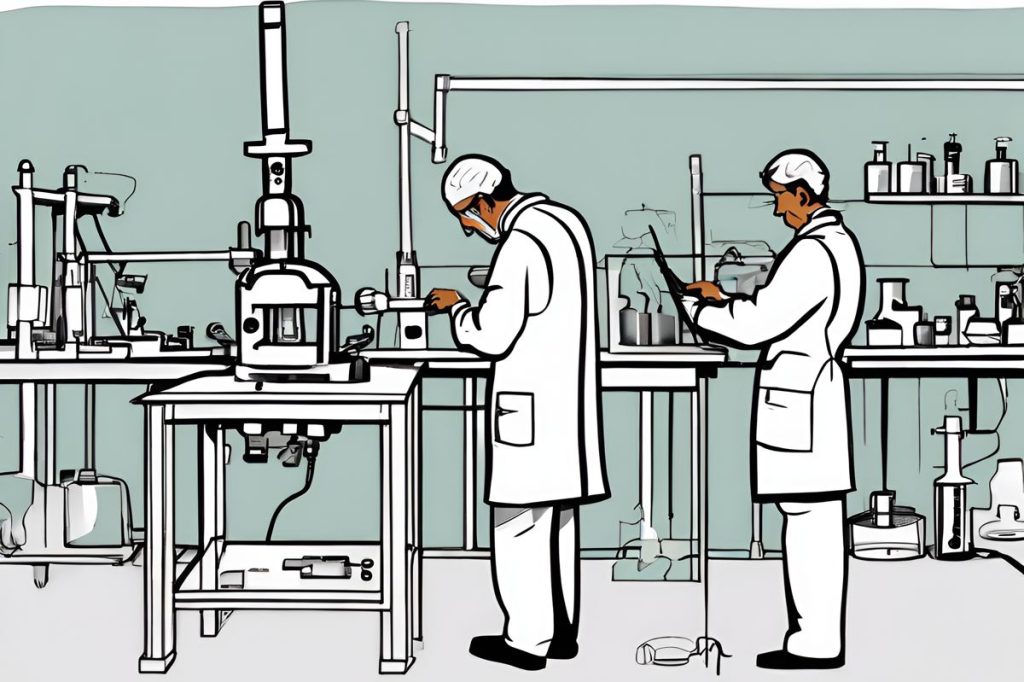Medochemie, a prominent pharmaceutical company based in Cyprus, has been cleared by the health ministry after fully complying with regulations following a contamination incident involving their Dicillin Sandoz 500 mg capsules. After thorough investigations and corrective measures, inspections confirmed no contamination, ensuring the safety and quality of their products.
Has Medochemie complied with health regulations after the antibiotic contamination incident?
Yes, Medochemie has fully complied with health regulations following the antibiotic contamination incident. After a thorough review and investigation, corrective measures were taken, and subsequent inspections have shown no evidence of contamination. The company’s commitment to safety and compliance has been acknowledged by Cyprus’ health ministry.
Official Compliance Acknowledged
Cyprus’ health ministry has recently addressed public concerns by confirming that Medochemie, a notable pharmaceutical company, has fully complied with the necessary recommendations following an incident involving a contaminated antibiotic. In February of the previous year, the company faced a challenging situation when their Dicillin Sandoz 500 mg capsules were recalled. This recall was initiated after reports emerged that the medication contained multi-resistant CPO bacteria, which led to hospitalizations.
The occurrence drew significant attention, leading Danish authorities to notify the European Medicines Agency (EMA) about the potential severity of the contamination. This prompted a thorough review of Medochemie’s practices, particularly focusing on their Limassol facility.
Investigation and Response
Panos Mytides, the head of good manufacturing practice (GMP) for Cyprus’ pharmaceutical services, indicated that swift action was taken to investigate Medochemie’s operations. The investigation sought to uncover the extent and nature of any breaches of protocol. Although specific details of the findings were not publicized, Mytides clarified that there were no critical breaches of GMP identified.
Medwatch, a specialized news source in pharmaceutical topics, reported that the Danish Medicines Agency identified two clear violations of EU GMP regulations. The cited issues at Medochemie included an absence of a proper documentation system and employees not adhering to necessary glove-wearing protocols. Danish authorities attributed the contamination largely to inadequate cleaning procedures. Mytides did not provide further comments on these specific issues but emphasized that such breaches, while not critical, are not uncommon in the global context and are taken seriously when they do occur.
Corrective Measures and Safety Assurance
Subsequent to the investigation, Medochemie initiated corrective steps to address the identified issues and reinforced their commitment to safety and compliance. More inspections followed, and samples were tested by the state lab, consistently showing no evidence of contamination since the original incident. This positive outcome has led to a decision to scale back the increased frequency of inspections.
Mytides also pointed out that the contamination was confined to a single department and seemed to be linked exclusively to one specific product. There was no indication that the problem was more widespread within the company.
International Cooperation and Data Protection
Regarding international cooperation, the situation between Cyprus and Denmark was marked by excellent communication, according to Mytides. Despite concerns raised by Medwatch about Cyprus’ willingness to collaborate, Mytides confirmed that there were multiple teleconferences and the sharing of a report detailing the technical findings. He underscored the delicate balance between transparency and the protection of trade secrets and employee privacy under GDPR.
The Cypriot authorities took full responsibility for overseeing the investigation within their jurisdiction, which included Medochemie. They deemed a joint investigation unnecessary, citing sufficient local expertise and capacity to manage the situation effectively. This responsible handling of the incident by both Medochemie and Cyprus’ health ministry reflects the commitment to maintaining high standards in pharmaceutical manufacturing and public health safety.
“`markdown
FAQ
Has Medochemie complied with health regulations after the antibiotic contamination incident?
Yes, Medochemie has fully complied with health regulations following the antibiotic contamination incident. After a thorough review and investigation, corrective measures were taken, and subsequent inspections have shown no evidence of contamination. The company’s commitment to safety and compliance has been acknowledged by Cyprus’ health ministry.
What were the findings of the investigation into Medochemie’s operations?
The investigation revealed two clear violations of EU GMP regulations, including an absence of a proper documentation system and non-compliance with glove-wearing protocols. However, the head of good manufacturing practice for Cyprus’ pharmaceutical services stated that there were no critical breaches identified. The contamination was confined to a single department and linked to one specific product, ensuring that it was not more widespread within the company.
What corrective measures has Medochemie implemented following the contamination incident?
Medochemie has initiated several corrective steps to address the identified issues from the investigation. These measures included reinforcing their commitment to safety and compliance, implementing a proper documentation system, and ensuring adherence to necessary hygiene protocols. Following these actions, further inspections showed consistent negative results for contamination.
How has the situation been managed between Cyprus and Denmark?
The situation between Cyprus and Denmark was characterized by strong communication and cooperation. The Cypriot authorities maintained oversight of the investigation and deemed a joint investigation unnecessary, citing their expertise to handle the situation. They engaged in multiple teleconferences and shared reports to ensure transparency while balancing the protection of trade secrets and employee privacy under GDPR regulations.
“`

